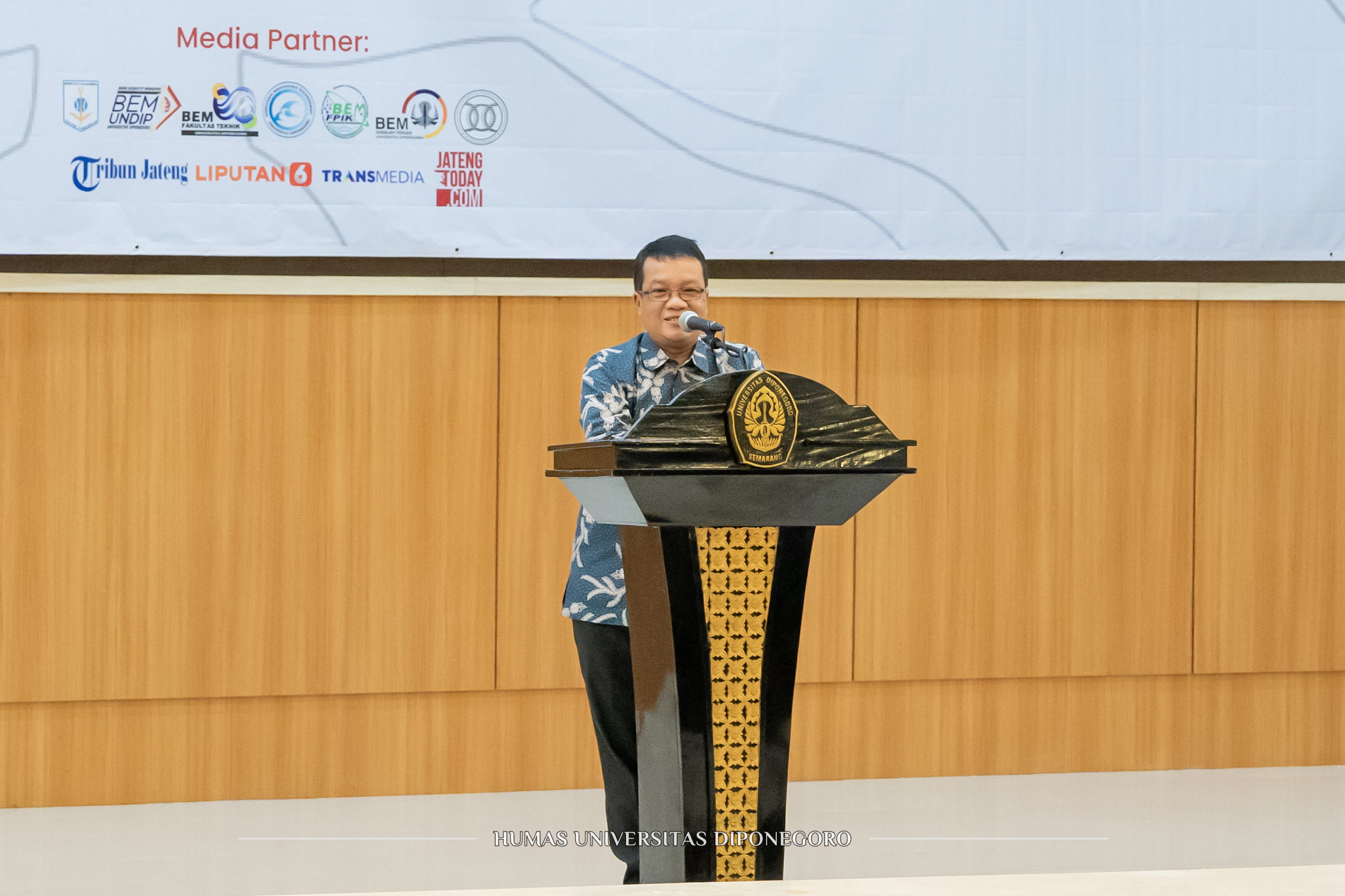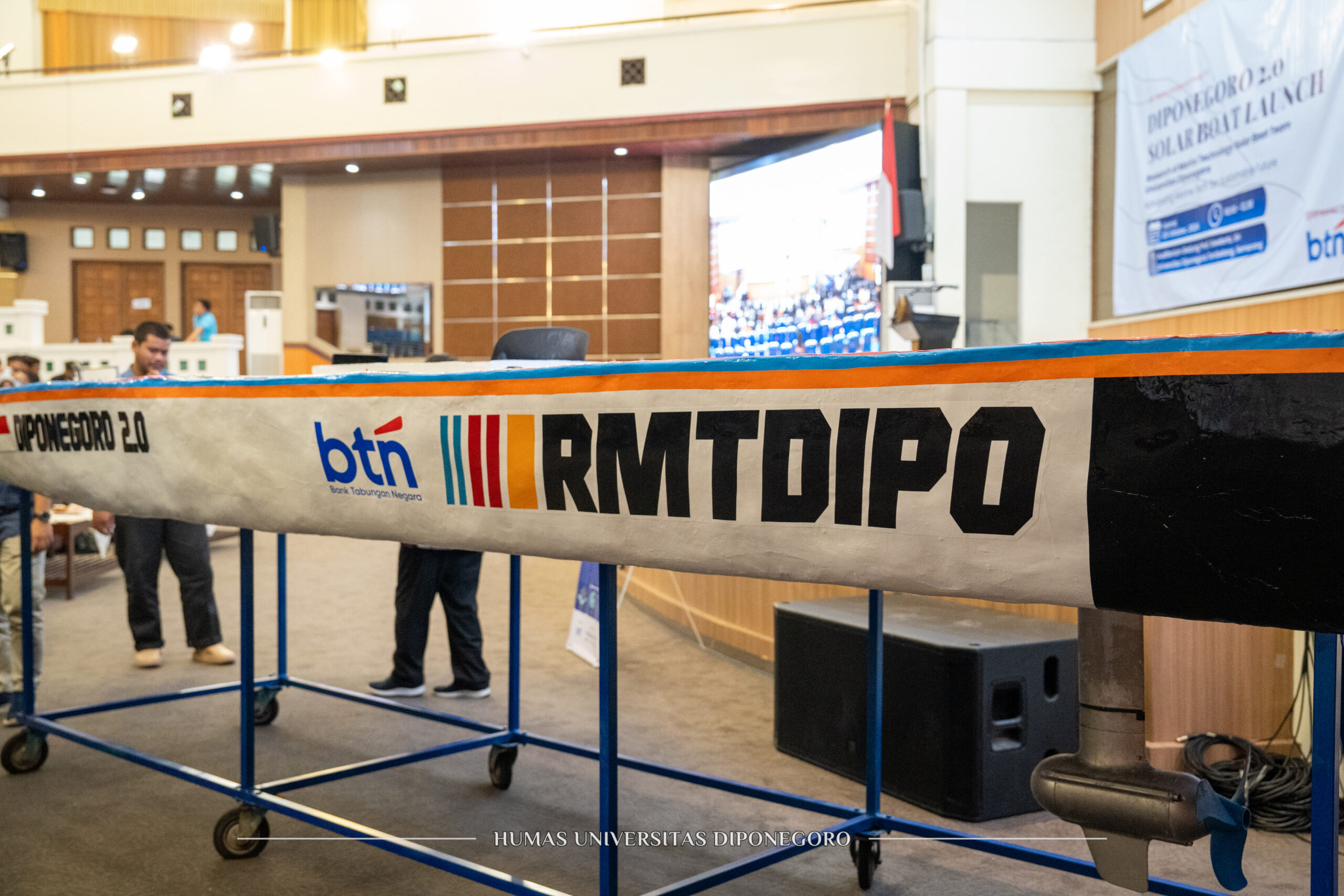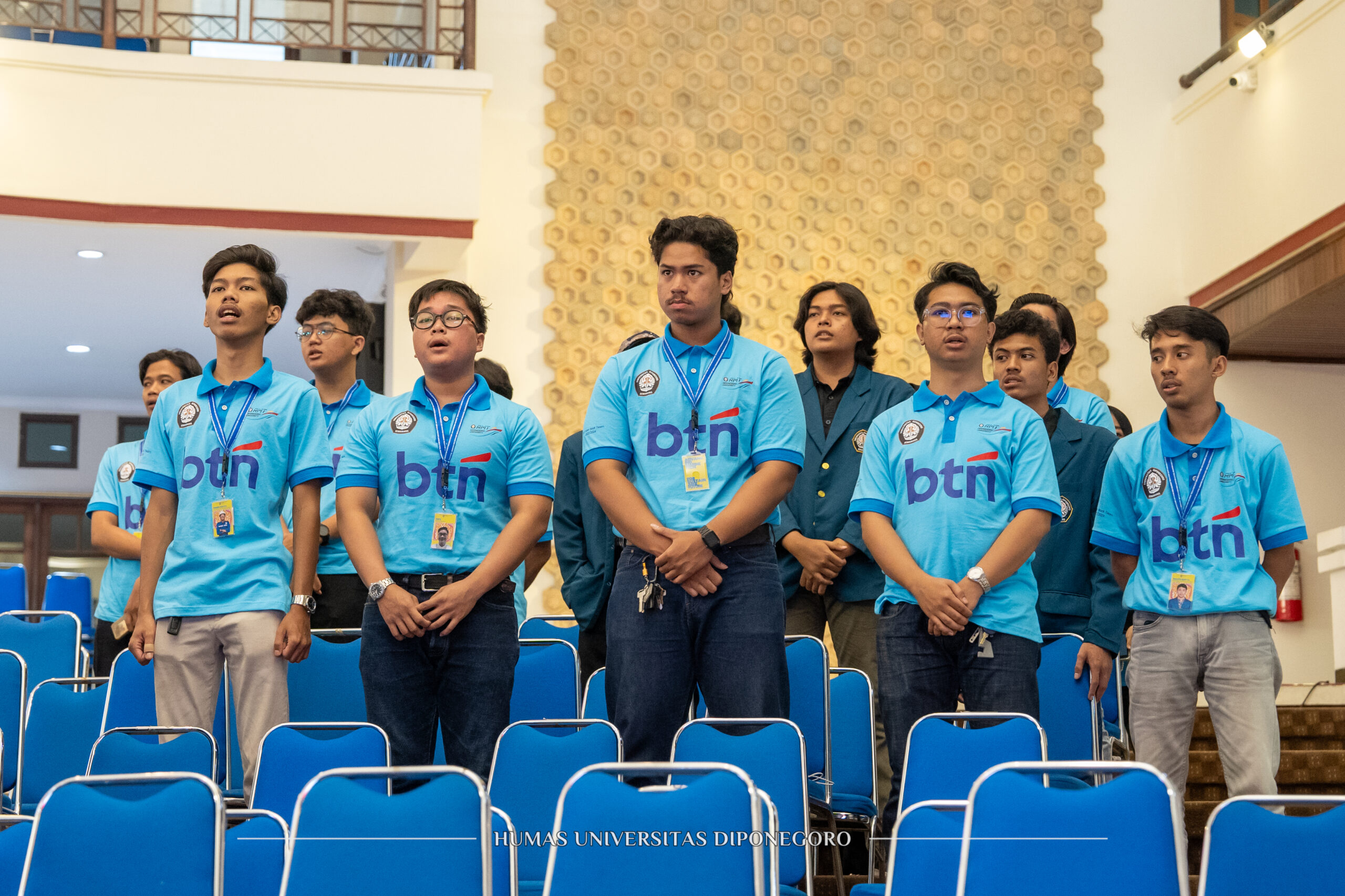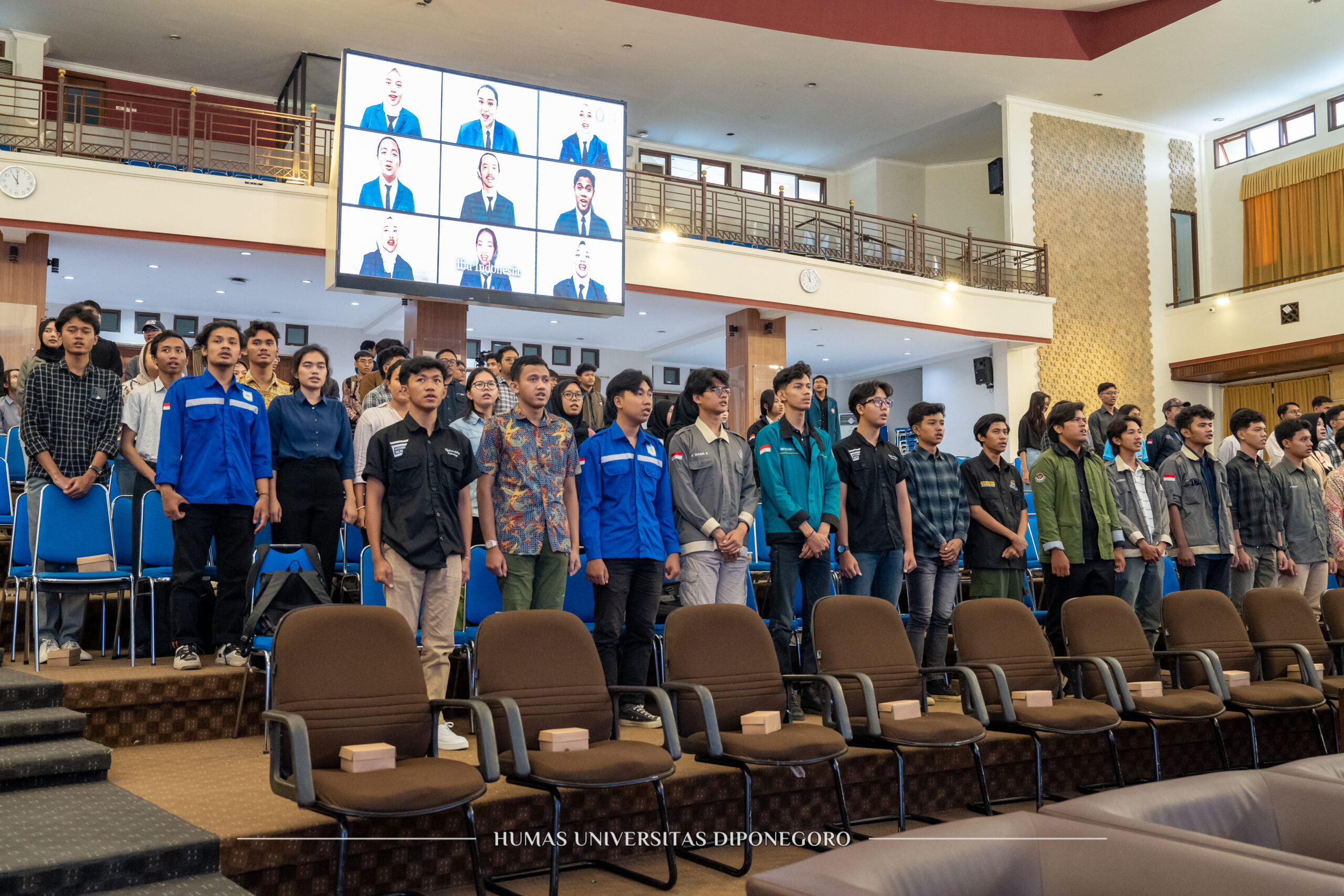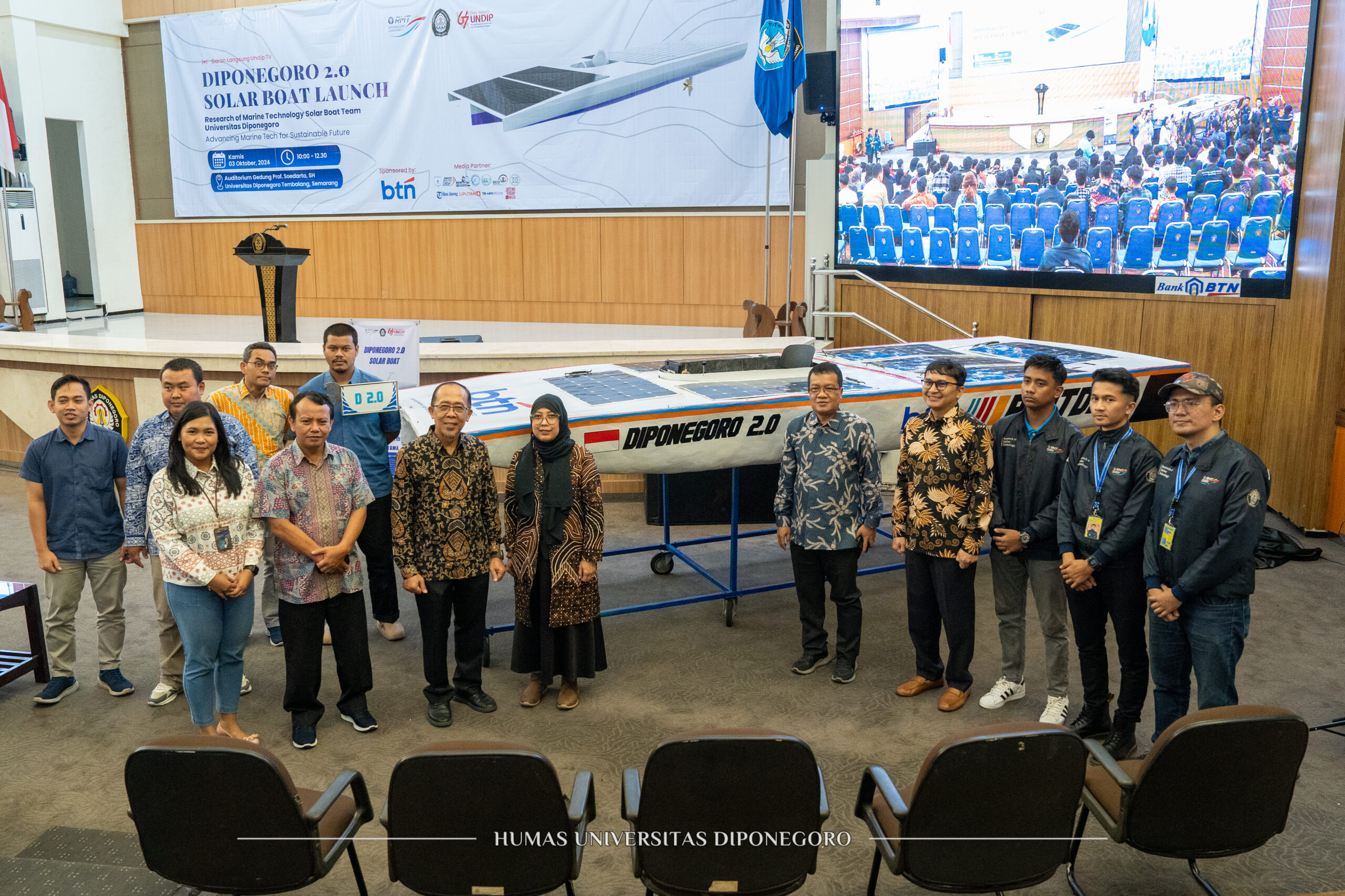UNDIP, (3/10)—The Research of Marine Technology (RMT) Team of Universitas Diponegoro 2024 proudly presented its latest creation at the launch event of the Solar Boat “DIPONEGORO 2.0” held at Prof. Sudarto, S.H. Building, UNDIP Tembalang Campus, Semarang.
The launch event, themed “Advancing Marine Tech For a Sustainable Future,” marked the development of a renewable energy exploration vessel to advance marine technology through research results as an innovation for a sustainable and environmentally friendly future. This boat is not only the RMT UNDIP 2024 team’s commitment to creating solar-powered vessel technology innovations but also a concrete step in facing environmental challenges and climate change.
It is known that RMT UNDIP is a solar-powered boat research team prepared for international competitions. The team consists of students from various departments and faculties collaborating to create innovations in the maritime field. Over four periods, RMT has produced several flagship vessels, including “WIRATAMA I,” “WIRATAMA 2,” and “DIPONEGORO 1.0,” which have competed in various international events from the Netherlands to Monaco. The support of the RMT UNDIP team in competitions in Monaco has successfully brought the name of Diponegoro University to the global stage.
Dr. Ir. Limbang Kustiawan Nuswantara, S.Pt., M.P., IPU, Vice Director for Academic and Student Affairs, expressed gratitude on behalf of the Vice Rector for Academic and Student Affairs of UNDIP for the involvement of various parties in supporting the success of this solar boat launch event.
“On this occasion, we will describe the utilization of boats using solar power. It is hoped that this will reduce global warming, aligning with Indonesia’s Clean Vision by 2050, which targets a net-zero emission condition by reducing or mitigating greenhouse gas emissions to meet daily needs through adopting renewable energy,” Limbang stated.
“Thus, UNDIP, as a university focusing on education and research, should take the initiative. Starting with students and lecturers who have conducted extensive research on reducing greenhouse gases (methane), we hope that the goal of achieving Indonesia’s Net Zero Emissions (NZE) by 2060 can be realized,” he added.
Meanwhile, Harris, S.T., M.T., Head of the Center for Electricity, New Energy, Renewable Energy, and Energy Conservation Testing and Research (BBSP KEBTKE), Directorate General of EBTKE, Ministry of Energy and Mineral Resources (ESDM), in his speech, expressed his appreciation for the remarkable achievements of the RMT UNDIP Team in developing a solar-powered boat by advancing renewable energy in the transportation sector, especially water transportation in Indonesia.
“Hopefully, this innovation will become an important part of our efforts to electrify the transportation sector on a large scale in Indonesia. Not only in the industrial and commercial sectors, but the transportation sector is one of the largest contributors to emissions. Thus, electrifying the transportation sector could achieve two main objectives: reducing fuel consumption and lowering greenhouse gas emissions by shifting from fossil energy to renewable energy,” said Harris.
He also added that Indonesia is accelerating its renewable energy transition through a national commitment to reducing greenhouse gas emissions in the energy sector. Successful energy transition requires collaboration and support from all parties, including society, the government, industries, the media, and academia, to achieve a just transition and fulfill the climate change mitigation goals.
Furthermore, the RMT UNDIP Team Leader, Ashiro Alexander Silalahi, commonly known as Alex, explained that the Solar Boat “DIPONEGORO 2.0,” which will represent Indonesia in the prestigious international event, the Monaco Energy Boat Challenge, is the latest innovative vessel using recycled composite materials from carbon fiber and polyester as the primary materials for its hull construction. “This innovation arose from the maritime industry’s need for more environmentally friendly materials that support sustainability. The method used in this experiment is the ASTM D3039 tensile test, conducted on material specimens such as carbon fiber and polyester. We compared tensile strength and maximum load capacity to determine the feasibility of these materials in building the ship’s hull,” he stated.
“The experimental results show that this recycled composite has excellent mechanical strength, can withstand significant loads, and is proven to be feasible for hull construction, with the added advantage of waste reduction and minimized environmental impact,” Alex explained.
The launch of the latest solar boat is expected to serve as a starting point to raise awareness, strengthen collaboration, and encourage concrete actions to create a more environmentally friendly and sustainable future in the maritime world. It also emphasizes the importance of renewable energy exploration and the challenges of climate change, thereby garnering more significant support for the development and utilization of renewable energy in the maritime sector. (DHW – Public Relations)
